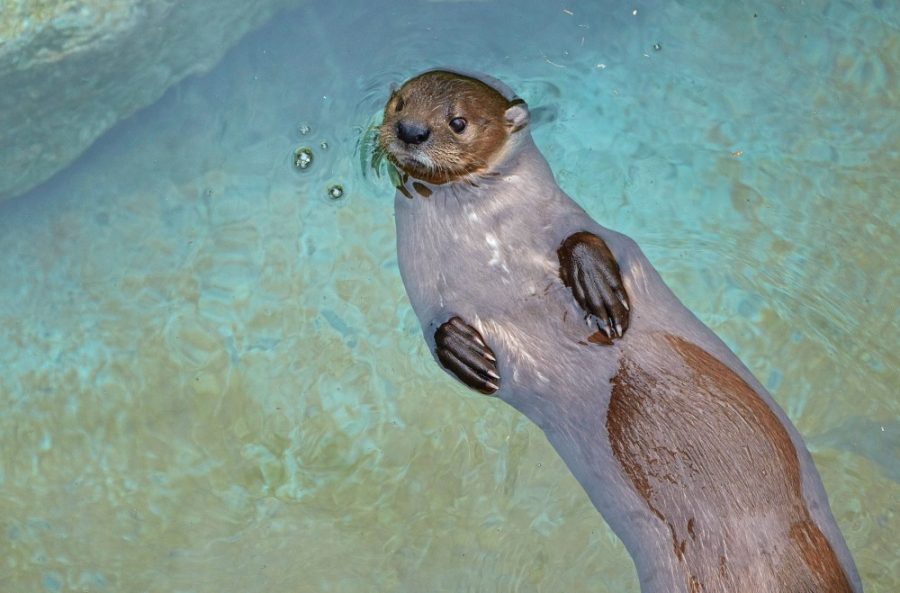As Reid Park Zoo celebrates its 50th anniversary, Tucson voters will have the opportunity to shape its future, thanks to two citizen initiatives on the Nov. 7 ballot sponsored by the non-profit Reid Park Zoological Society.
In Proposition 202, voters can authorize the zoo to raise the non-food-related sales tax 0.1 percent for 10 years and create a dedicated zoo fund. The other proposal, Proposition 203, would amend the city code to implement the tax.
“First and foremost, this sales tax will go toward the animals to give them better habitats, for example a larger exhibit for our tiger, and to bring more endangered species here to Tucson,” said Nancy Kluge, president of the Reid Park Zoological Society..
The expected 8 to 10 million dollars of additional revenue per year will be used to repair aging infrastructure, implement the zoo’s Vision 2028 plan and maintain accreditation.
The zoo and zoological society currently operate with a combined budget of $5 million coming from private and public sources. Yet, without the guarantee of new public funds, Kluge said the zoo’s ambitious vision cannot be implemented.
RELATED: Reid Park Zoo breaks ground animal health center
With the goal of developing an immersive real-life experience, the Vision 2028 plan incorporates a Discovery Trail to teach children about conservation, as well as a new Africa Lodge where visitors can view hippos underwater.
The plan involves adding to the existing 300 plus species at the zoo and focusing expansion and construction on enhancing the zoo’s conservation and education missions, according to Kluge.
The zoo will seek to expand its footprint north and integrate educational programs, videos and activities throughout the park through the use of technology and new infrastructure.
“The sales tax will also ensure that the zoo remains affordable for our local kids and families,” Kluge said.
The new funding will help provide free field trips to K-12 schools and keep admission costs low for the zoo’s 5 million yearly visitors, Kluge said.

According to Ward 6 City Councilman Steve Kozachik, investing in the zoo also comes with an economic incentive in the form of tourism dollars and job creation.
The initiatives face one challenge: Voters already approved a sales tax increase in May to fund road and emergency response infrastructure.
Local businessman Tom Tronsdal, who ran in the Democratic City Council Ward 3 primary on a platform of growing the separation between the city and local businesses, told KVOI radio host Bill Buckmaster the tax was not the right policy for Tucson.
Some opponents argue the sales tax has already increased enough in recent years.
According to Kozachik, though, “The primary challenge will be voter confusion.”
This stems from the fact that both propositions need to be passed in order to implement the tax.
Internal polling from the Reid Park Zoological Society indicates strong support for the tax, and Kozachik believes their outreach and general community support will overcome these challenges.
The University of Arizona and its students also have an opportunity to benefit.

“I think the passage of the sales tax would provide increased opportunities for collaboration between the zoo and the UA,” said John Koprowski, professor in the School of Natural Resources and the Environment and associate director of Wildlife Conservation and Management.
The UA has a long history of collaborating and building relationships with the zoo. For example, Shane Burgess, dean of the College of Agriculture and Life Sciences, currently serves on the board of directors for its zoological society.
Most recently, the UA started offering a new undergraduate certificate in zoo and aquarium conservation through the School of Natural Resources and the Environment.
Students design an internship with an accredited zoo or aquarium to focus on their interests and goals. Students have paired up with the Reid Park Zoo for many of the programs.
The zoo hopes to expand its breeding program in an attempt to preserve species like the Malaysian tiger. The tiger, whose population has dropped below 400 in the wild, provides UA students an opportunity to engage with the conservation of endangered species.
RELATED: Lions and tigers and bears: UA offers new zoo and aquarium conservation certificate
The UA is also constructing an Animal Health Facility at the zoo to expand the zoo’s medical capabilities and lay the foundation for its new Doctor of Veterinary Medicine Program.
Students will be able to study surgery from observation rooms and participate in the hands-on treatment of exotic animals.
“The UA and the zoo are both community-minded and share a similar educational mission, as well as a commitment to research and conservation,” Koprowski said.
According to Koprowski, the passage of the tax will only increase the opportunities to further these complementary missions.
“In my mind, this tax is a win-win,” Koprowski said.
To vote in Tucson’s Nov. 7 election, voters must be living in Tucson and registered to vote 29 days in advance.
Follow Randall Eck on Twitter









